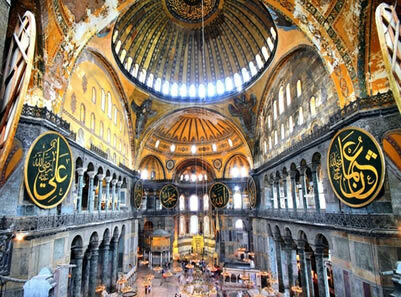You've probably heard your teacher say that during the warsNapoleonic (occurring in Europe, at the beginning of the 19th century), an event of great importance changed the history of Brazil, as it contributed to its independence, which took place in 1822. This event was the arrival of the Portuguese Royal Family in Brazil, in 1808. D. John VI he came with his family and the entire court to Brazil in order to escape the siege of Napoleon against the European continent. To do so, it had commercial and military support from England.
With the shift of power from Lisbon to Rio de Janeiro, Brazil was raised to the category of United Kingdom, together with Portugal and Algarves, ceasing to be a colony. From 1808 to 1822, Brazil underwent an intense process of transformation, and a strong nationalist movement began to take shape in various regions of the country. One of the events linked to this movement was widely highlighted: the Pernambuco Revolution of 1817.
The Pernambuco Revolution of 1817 was triggered after the economic measures adopted by D. John VI. One of these measures concerned raising taxes on the Brazilian population to cover expenses incurred in other activities, especially wars. At that time, the Pernambuco region was going through a period of serious crisis, as there was a growing weakening of the cotton and sugar trade, which moved a large part of the economy at the time.
When the king's measures reached the province, many landowners, liberal professionals, members of the clergy and urban workers organized a movement against the authority of D. John VI. This movement had the intention of creating a provisional government and instituting a Republic in Pernambuco. See what historian Boris Fausto says about this event:
“The revolutionaries took Recife and implemented a provisional government, based on an 'organic law' that proclaimed the Republic and established equal rights and religious tolerance, but did not address the issue of slavery. Emissaries were sent to the other captaincies in search of support and to the United States, England and Argentina, also in search of support and recognition. The revolt advanced through the sertão, but soon after, came the attack of Portuguese forces, from the blockade of Recife and the landing in Alagoas. The struggles took place in the interior, revealing the unpreparedness and disagreements among the revolutionaries. In the end, Portuguese troops occupied Recife in May 1817”. [1]
This event, although unsuccessful, was one of the expressions of greatest demand for independence seen in the Joanine Period in Brazil.
GRADES
[1] FAUSTO, Boris. history of Brazil. São Paulo: Edusp, 2013. p 111.
Take the opportunity to check out our video lesson on the subject:


